

Discover more from The Cottage
February 2 is one of the most ancient Christian holy days — the Feast of the Presentation of Jesus — also called Candlemas. It commemorates the events of Luke 2 when Joseph and Mary brought their newborn son to the Temple in Jerusalem. The purpose was Mary’s purification, a cleansing ritual forty days after the birth of a son. Upon arriving at the Temple, they encountered Simeon, an elderly blind prophet awaiting the Messiah. He took the child from them and proclaimed:
My eyes have seen your salvation,
which you have prepared in the presence of all peoples,
a light for revelation to the Gentiles
and for glory to your people Israel.
This event marks the final festival in the cycle of light. Weeks ago, Advent began with lighting candles in anticipation of the Jesus’ birth. The Nativity is accompanied by angelic beams on the family in a manger. Epiphany celebrates the star directing seekers to his birthplace. And, as the season following Epiphany unfolds, the light expands, inviting the first disciples to “come and see.” The final movement in the arc of light is Candlemas, where the entire world is set ablaze with God’s manifestation of love.
Christian feast days are, of course, theological. But they are laden with cultural meanings as well. In the Roman world, and in Europe where Christianity would flourish, early February was an important time in the cycle of seasons. The Presentation falls halfway between the winter solstice and the spring equinox, and is the time when many of Europe’s ancient tribal people believed the earth woke up to new life. It marked the season of lengthening days — and was associated with fertility, the lambing season, and the returning of light.
The intersection of the Jewish story of Mary’s purification and Jesus the Light with the primal seasonal celebrations of Mother Earth and brighter days created the Christian celebration of Candlemas. Thus, on February 2, it became a practice that many Christians would bring candles to the church to be blessed — and then walk through towns or villages in candlelit processions.
The long weeks of winter candle festivals — from Advent to Christmas through Epiphany — end with us bearing light into the world. In a way, it all began so passively. Waiting for God to act, to birth peace and justice in the world. God did something for us, gave us a gift of life and light.
And the cycle concludes with a remarkable admonition — words that millions of Christians will hear next Sunday: You are the light of the world.
Yes, God created the light. Jesus is light in the darkness. And yet we — fragile and flawed human beings — are the light of the world. Jesus says, “No one after lighting a lamp puts it under the bushel basket, but on the lampstand, and it gives light to all in the house. In the same way, let your light shine before others.”
We wake up the earth. We are birthing new life. We’ve journeyed from waiting to receiving to following to joining the great procession of love and justice in and through the world.
We are the light.
I know that I have life
only insofar as I have love.
I have no love
except it come from Thee.
Help me please to carry
this candle against the wind.
— Wendell Berry
LENT AT THE COTTAGE
Ash Wednesday is February 22.
This Lent, The Cottage will explore the EMPTY ALTARS of our days.
We are living in a time of iconoclasm. We've stripped the altars of both state and church. America's spiritual landscape is now marked by empty altars everywhere.
What does it mean to live in such an age? And what comes next? Will we put up new icons? How do we go about that? Can we reimagine the sacred space in which we live?
I’ll be exploring EMPTY ALTARS in TWO WAYS:
1. WEEKLY DEVOTIONAL REFLECTIONS for paid subscribers at The Cottage. Shhh! Don’t tell anyone but Empty Altars is the theme of my next book project — so you’ll be getting a preview of what I’m working on in addition to inspirational material for your Lenten journey.
If you aren’t already a paid subscriber and want to receive the Empty Altars devotional reflections, please upgrade here:
2. An EMPTY ALTARS online class with me and Tripp Fuller. The Cottage and Homebrewed Christianity are teaming up once again for a mind-blowing, heart-expanding class this Lent — and our focus this year is history, spirituality, and social change. The course requires a separate sign-up HERE — and is offered for free. Voluntary donations are welcome.
* * *
If you want the ENTIRE EXPERIENCE, make sure you are registered for the class AND have a Cottage paid subscription. The registration and the subscription will give you full access.
Of course, you are welcome to do one without the other — they are complimentary explorations but each is beneficial on its own.
INSPIRATION
Eight o’clock, no later
You light the lamps,
The big one by the large window,
The small one on your desk.
They are not to see by—
It’s still twilight out over the sand,
The scrub oaks and cranberries.
Even the small birds have not settled
For sleep yet, out of the reach
Of prowling foxes. No,
You light the lamps because
You are alone in your small house
And the wicks sputtering gold
Are like two visitors with good stories
They will tell slowly, in soft voices,
While the air outside turns quietly
A grainy and luminous blue.
You wish it would never change —
But of course the darkness keeps
Its appointment. Each evening,
An inscrutable presence, it has the final word
Outside every door.
— Mary Oliver
I recently spoke with Dr. Simran Jeet Singh of the Aspen Institute and Union Theological Seminary about his Sikh faith and his new book, The Light We Give. The longer conversation was for paid subscribers, but here’s a five-minute snippet of that discussion as we consider this seasonal theme of light — and how Sikhs and Christians might find a common spirit around this important idea. In it, he shares a lovely Punjabi parable about lanterns.
February 1 is also St. Brigid’s Day. Among other things, this beloved Irish saint is a patron saint of beer. Here’s part of a poem attributed to her:
I should like a great lake of beer for the King of Kings.
I should like the angels of Heaven to be drinking it through time eternal.
I should like excellent meats of belief and pure piety.
I should like the men of Heaven at my house.
I should like barrels of peace at their disposal.
I should like for them cellars of mercy.
I should like cheerfulness to be their drinking.
I should like Jesus to be there among them.
I should like the three Marys of illustrious renown to be with us.
I should like the people of Heaven, the poor, to be gathered around from all parts.
Subscribe to The Cottage
Part retreat, part think tank. A place for inspiration and ideas about culture, faith, and spirit.

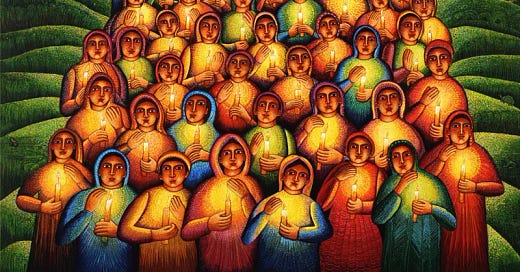



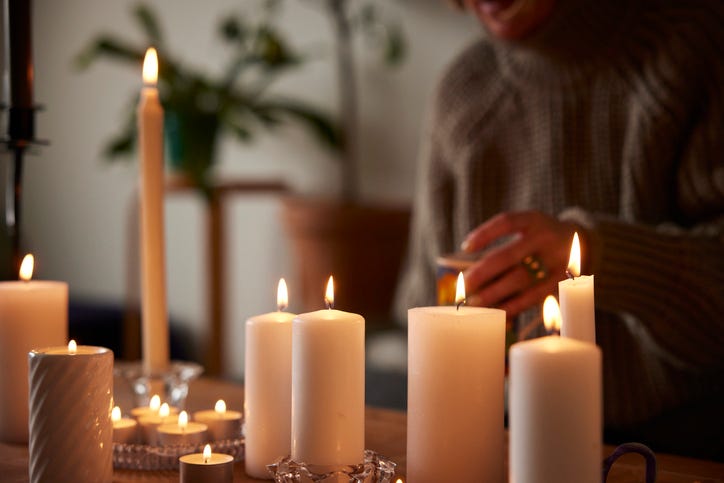





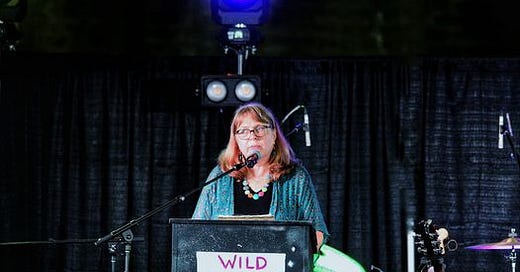

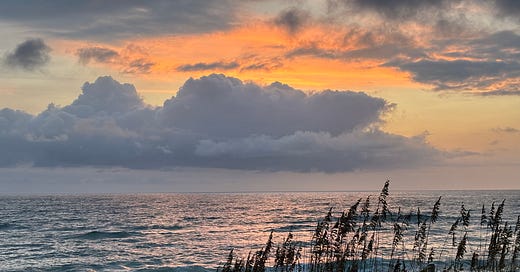

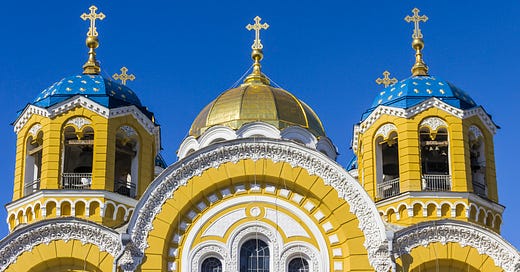

I had not heard of Candlemas until I read your story this morning. Thank you for your research and your generous offer to enrich us through your words.
Thanks for this! The Irish celebrate Imbolc and the feast of St. Brigid, as you mentioned. This is is shoulder time between the winter and spring equinoxes. I have noticed the lengthening light here in the northern hemisphere. Your reflection nicely encapsulates the/my Christian view of this time.